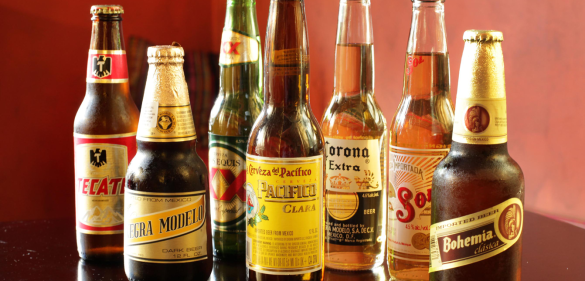While it’s true that craft beer is the darling of the current beer market, there’s also another contender ramping up its efforts – and that’s imported beers. Imported beer volumes in the U.S. increased by 13.0% to 231.2 million gallons in the first quarter of 2015 – are you keeping stocked with plenty of imported options?
The Aura of Authenticity
Import beer refers to beer brewed internationally. Before craft beer and microbreweries were popping up at the speed at which they are – averaging 1.5 per day, imported beer offered consumers a different perspective. Imports produced an artisan-type of beer experience, alluding to small batches and handmade auras of authenticity. In a Journal of Marketing Research excerpt, professors Ravi Dhar and George Newman of the Yale School of Management explain:
It is well established that differences in manufacturing location can impact consumer preferences through lay inferences about production quality... Specifically, we find that due to a belief in contagion, products from a company's original manufacturing location are seen as containing the essence of the brand. In turn, this belief in transferred essence leads consumers to view products from the original factory as more authentic and valuable than identical products made elsewhere.
How Craft Beer Affects Imported Beer
Imports can deliver the prestige, mystery, and sophistication. They are important to the beer industry because they are different and offer unique beer drinking experiences. European labels garner loyalty and their market share continues to grow. Some of the more notable imports include Corona, Guinness, and Heineken. A lot of imports come with distinctly different pour techniques, glassware, and heritage. You can imagine how that loyalty takes hold.
Beer has become classifiable by style. Domestic, craft, import. It’s important to offer your patrons enough variety based on the classifications they’ll be interested in. And while it’s common for the average beer consumer to be loyal to a specific label (ie, Miller Lite) or a specific type (ie, wheat), they also want the option to drink other beer. Imports have always had the perception of premium when compared to domestic beers.
How Imported Beer Continues to Evolve
Innovation will always continue to drive the beer industry. Younger consumers are more engaged with brands that offer a level of distinction, which imports always have. This group of consumers also is willing to pay more for perceived quality. In June of this year, Nielsen data showed the top three segments to top the beer growth charts to be craft beer, cider, and Mexican imports. The same report showed that beers that are more distinct, artisanal, higher-priced, and quality were relatively more important to younger consumers aged 21-34.
At Bernick’s, we have a pretty substantial portfolio of imported beer, including these local favorites:
- Guinness is an Irish import and the marquee brew is the Extra Stout. The first sip reveals its characteristic deep, dark color and refreshing bite.
- Dos Equis is the world’s most interesting beer, brewed in Mexico since 1897. It was originally named Siglo XX as a Roman numeral way of ushering in the upcoming 20th century.
- Strongbow proves imports aren’t just beer. This hard cider, originally produced in England for over 50 years, now makes its way to us from Belgium in Gold Apple, Honey, Red Berries, and Ginger flavors.
If you aren’t offering enough imports to meet the rising demand of the marketplace, let us know. We’ll help you stock a wide array of beer to appeal to everyone.



